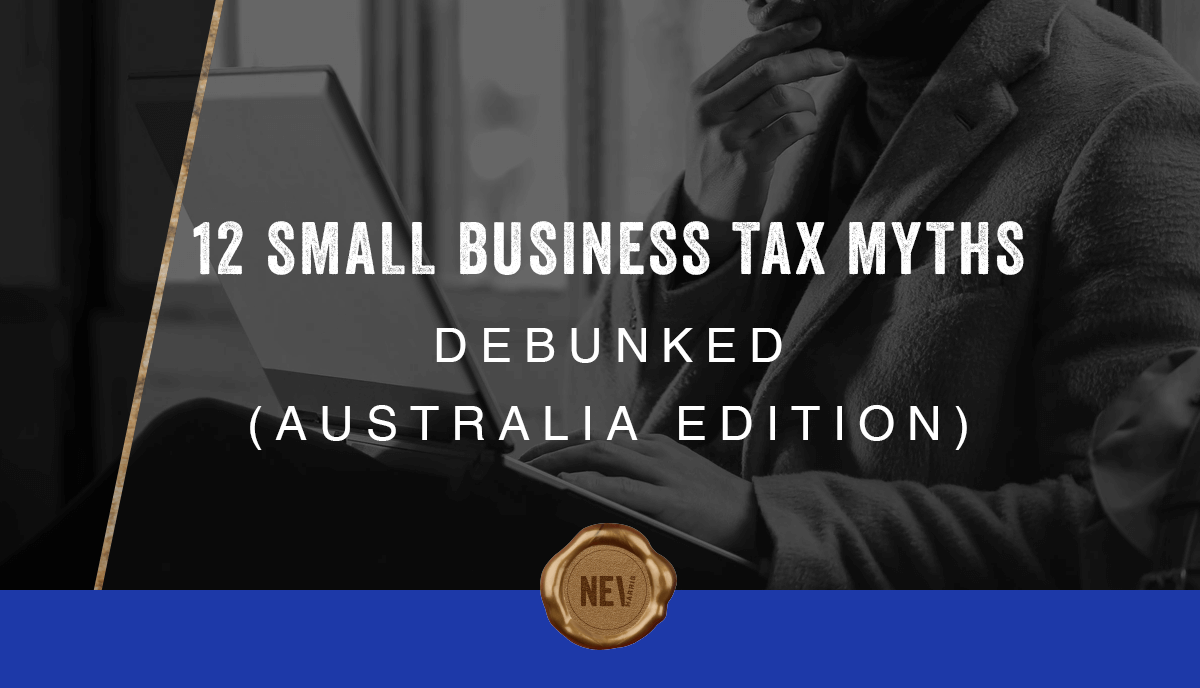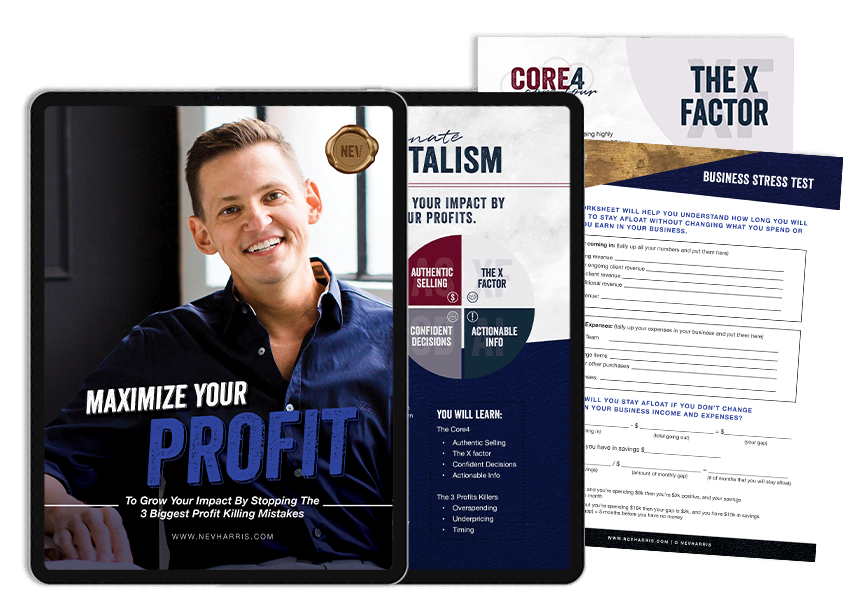12 Small Business Tax Myths Debunked (Australia Edition)


Tax management is perhaps one of the most dreaded tasks in business. After all, you probably know someone who knows someone else who was audited by the ATO and their business has never quite been the same again.
But tax time doesn’t need to be so stressful for agency owners. Nor does it have to put you in a precarious situation in terms of your cash flow.
So long as you familiarize yourself with the most common small business tax myths, and implement a tax management system for your business, you’ll be fine come October 31. To make sure you stay in the ATO’s good graces, start by memorizing the truths about these tax myths:
Myth #1: Australian agency owners only have one tax payment to make.
Part of this myth is true. In Australia, the tax cycle covers July 1 to June 30. As a agency owner , you’re required to lodge your tax return and all moneys owed by October 31. However, it’s a good idea to make pre-payments to the ATO throughout the year through the PAYG (Pay As You Go) system. This way, you don’t receive a tax bill from the government with a large lump sum that’s due all at once. Instead, your taxes become a more consistent “cost” that you handle alongside your other business expenses. The more consistent your cash flow becomes (and, yes, taxes are part of that), the easier it will be to scale your business down the road.
Myth #2: Taxes are the same for sole traders and companies.
Income tax rates differ based on how you’ve chosen to run your business:
For sole traders (or individuals) that earn less than $18,200, there is no tax owed. For everyone else, tax rates depend on how much money you make.
For instance, if you earn between $18,201 and $37,000, you’d owe:
$.19 per $1 earned over $18,200
In the next earning tier, though, a higher fee and flat rate are factored in:
$3,572 + $.325 per $1 earned over $37,000
For the most part, sole trader taxes are lower than the company tax rate, which currently stands at 30%. The lines might get a little blurred as sole traders work their way closer to and beyond $180,000 a year and the tax burden grows larger.
Myth #3: agency owners can avoid individual income tax by paying themselves a smaller income.
When you’re the sole proprietor of a business, 100% of the income generated counts towards your individual taxes owed. When you’re the owner of an incorporated business structure, however, you only have to pay individual taxes on whatever salary you generate from the company.
So, for instance, let’s say your agency made $150,000 and you paid yourself a salary of $30,000 from it.
You might be looking at the tax-free threshold of $18,200 and wondering if there’s anyway to spend the rest of that salary on deductible business expenses. That way, the government can’t charge you any taxes on the much-lower salary you paid yourself.
That might be tempting, but be careful trying to massage the numbers to work in your favor. If the salary you pay yourself as a agency owner seems too measly based on your earnings or compared to the average market rate, that could be grounds for an audit.
In other words, it’s better and safer if you pay yourself an honest wage and then more carefully manage your money throughout the year so you can make all your tax payments — for the company and yourself — in full and on time.
Myth #4: Sole traders don’t owe any GST.
Goods and Services Tax (GST) registration is only optional if your GST turnover is less than $75,000. If you earn more than that, regardless of what type of company you run, expect to pay 10% to cover it.
Myth #5: Side projects aren’t taxed.
Let’s say you’ve decided to create a course or a plugin on the side. Even if it’s not an official part of your business, it’s still eligible for taxation if you’ve made more than $400 from it.
Myth #6: You can ask for an extension if you receive a tax bill.
The Australian tax year ends on June 30, which leaves you four months to lodge your tax return with the ATO and then pay off any tax bill you receive.
There are two reasons why you might get a tax bill:
- You didn’t submit any pre-payments over the previous year.
- You don’t pay enough in pre-payments.
Either way, when that tax bill arrives, payment is due at the same time as your paperwork: October 31.
If you’d rather not have to pay late fees (which will only add to your growing debt), it’s important to budget for and pre-pay your taxes all year long. This way, you won’t be surprised or overwhelmed by a large bill come tax time.
Myth #7: You should claim the maximum on all standard deductions.
There are certain standard operating costs that agency owners are allowed to deduct on their tax returns. Some of them come with maximum limits, like $150 for clothing or 5,000 kilometers for car-related expenses.
However, just because they’re “standard” doesn’t mean you can automatically throw $150 worth of clothes you bought for a web design conference onto your tax return. These standard deductions merely set the rules for what’s eligible and what’s not.
If you didn’t purchase clothing that was required for your job (like if you were a nurse with a formal uniform), that’s not a cost you can deduct.
If, on the other hand, you spent money on something that was directly used in or for your business, you can claim it. But make sure you have a receipt that proves how much you actually spent.
Myth #8: You should find as many “hidden” deductions as possible.
As the working world changes and more people become location independent, the kinds of deductions you can make are changing. However, just because you can now claim your home office as a deduction without fear of an automatic audit, that doesn’t mean you can go crazy with it.
For example, you might try to write off your entire Internet bill as a deduction, even though you only use it six hours a day for work. If you’re going to include deductions like these on your tax returns, make sure to accurately report how much of the out-of-pocket expense went towards your business.
And if you’re thinking about writing off something like a gym membership, you might want to consult with a tax expert first. Unless your brand image is closely tied to your personal health and wellness, that’s going to be a very difficult sell to the ATO.
It’s okay to look beyond the traditional list of expenses when it’s directly relevant to your business. When it’s not, though, it’s best not to push it.
Myth #9: All work-related travel is deductible.
When we talk about work-related travel, there are two types you might be thinking about expensing.
The first is the cost to travel for a work event, like a professional conference or retreat.
So, let’s say you traveled to Chiang Mai for an SEO event. The conference was two days, but you decided to tack on a couple extra days so you could see the sights while in town. While you can certainly deduct the cost of the event ticket, your airline and hotel tickets are a bit trickier since the cost of travel isn’t 100% work-related.
Just as with other expenses, you should only deduct costs that actually pertain to your business.
The second type of work-related travel cost is your commute.
To be clear, you cannot deduct the cost of your car if you commute to an office.
The only way to deduct the cost of your car is if you have to travel during work hours. So, driving to a coffee shop to meet a client would count. Driving home from the cowork space you go to every day, however, would not.
Myth #10: You don’t need a receipt if the business expense costs less than $300.
The ATO has a $300 receipt-free rule. However, it doesn’t apply to each business expense you include on your tax return. It applies to the total expenses you deduct.
So, if you plan on spending more than $300 on your business in any given year — on business travel, your home office, company software, etc. — keep a receipt of it.
These receipts are how you’ll protect yourself in the case of an audit. They’re also useful if you decide to hire an accountant or other tax professional to step in and handle your taxes for you.
Myth #11: You don’t need bookkeeping software.
In the very early days of your business, cash moving in and out of your business might be in small enough amounts where manually lodging your taxes doesn’t seem like a big deal. But it’s those early days when it’s important to put automated systems in place.
Bookkeeping software isn’t just useful for tracking profits and losses. QuickBooks, for instance, can also be used as receipt tracker and tax payment reminder and manager.
As your business grows, you’re going to be so wrapped up in getting new clients through the door that you won’t have time to think about all the things you need to buy or when you need to stop and make a pre-payment to the ATO.
That’s the beauty of bookkeeping software. It does all of it for you. This means less time you have to spend manually preparing your tax returns every year while also decreasing the amount of risk you take on when it all rides on you.
Myth #12: Your tax agent will take care of everything.
If you’re thinking, “I’ll skip the software and go straight to hiring an accountant”, it’s important to understand what they can actually do for you.
Accountants will certainly process your tax returns for you. And while they’ll do the best with what you’ve given them, that’s the key thing to focus on — you still have a role to play in this.
If you don’t do your due diligence and provide your tax agent with everything they need, or you don’t thoroughly review the return they’ve prepared, errors are apt to make their way to the ATO . And your agent won’t be the one responsible when they come knocking at your door with an audit.
That’s why, even if you do hire an accountant, you should still automate the rest with a bookkeeping software.
Steer Clear of These Small Business Tax Myths
Everyone has to deal with taxes, from the employed to the self-employed. However, as someone who’s decided to branch out and start their own business, tax management can be incredibly stressful if you don’t know what you’re doing.
If you want to make sure you keep your business audit-free, use these small business tax myths to correctly set up your own tax management system.
If you’re still feeling anxious about managing your taxes, let’s talk. We’d be happy to discuss your questions or concerns, and help you get on the right track so that tax management becomes less of a burden for you and your business.


